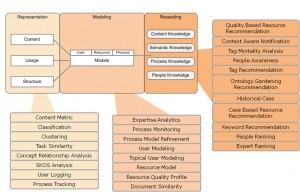Its my first day back in the office after three weeks of meetings, conference summer schools and travel. There is a lot to catch up on. First a rather belated review of the Personal Learning Environments 2011 conference in Southampton, UK.
#PLE_SOU (for some reason we have adopted a hash tag convention of following airport codes!) had much to live up to. The first PLE conference in 2010 in Barcelona had created a great buzz around it. In part this may have been the excitement of a conference dedicated to PLEs, in part the wonderful people it attracted and also the great venue in Barcelona. It was also because last year we had spent considerable effort in moving away from the traditional twenty minute paper presentation, followed by five or ten minutes of discussion, to facilitating more open and interactive formats, adapting more unconferencing type approaches to exchanging ideas.
We adopted the same approach in Southampton. Not everyone is happy with such an approach and it requires considerable effort on the part of session facilitators. But just as in Barcelona, we wanted to merge the informal and formal sides of the conference and to develop an ongoing dialogue between participants.At the same time with three or four simultaneous sessions we wished to provide people with choices of different formats and with opportunities for unconferencing break out sessions if the wished. And on the whole I think it worked well.
This year too, we put considerable effort into ensuring we had a robust technical infrastructure capable of supporting everyone being logged on with at least two devices simultaneously and providing a rolling display of tweets from the conference. We also provided a live stream from one of the four conference spaces, which attracted a surprising number of participants. Next year we will look at ways to better integrate those following the conference at a dostance.
Lisa, Su and Hugh, assisted by David Delgado have put considerable effort into the curation of the conference, with the conference web site providing access to photos, slides and videos and to a full archive of conference papers.
Now on to the contents (based on the sessions I attended). We still have no agreement on a definition of PLEs. I am not sure this is important. There seems to be a broad consensus about PLEs as an approach to teaching and learning and within that there is plenty of room for different developments and initiatives, be it m,ore theoretical pedagogic research, surveys and empirical studies, innovation in practice or technological development. Different approaches could include the development of Personal Learni9ng Environments, institutional support for PLE development (more on that in a moment), MOOCs or support for work based learning. Having said that there was a general recognition that the adaption of a PLE approach is challenging existing institutional practices and for example present practices around assessment are a barrier to PLE implementation.
There was also considerable concern that not all learners are confident or capable of developing and managing their own PLEs. In part this concern was based on a series of different studies looking at how learners are using new technologies and particularly social software and social networking applications. These studies are valuable and it would be good if there could be some kind of sharing space for such work.
Concerns over the confidence of learners in using technology are largely behind the move towards developing ‘institutional PLEs’. There is also a move by schools to adopt such systems both because of concerns for privacy and data security with commercial applications and services and to allow access to social networking technologies for those under 13 years old.
Although most research and development presented at the conference was orientated towards higher education there appears to be increasing interest in PLEs not only from the school sector but also for learning at work and in the c0mmunity.
Perhaps the most encouraging aspect of the discussions was that we were talking about actual PLE implementations, rather than the more speculative research and planning in Barcelona. PLEs are no longer a dream, but are increasingly being adopted for learning.

